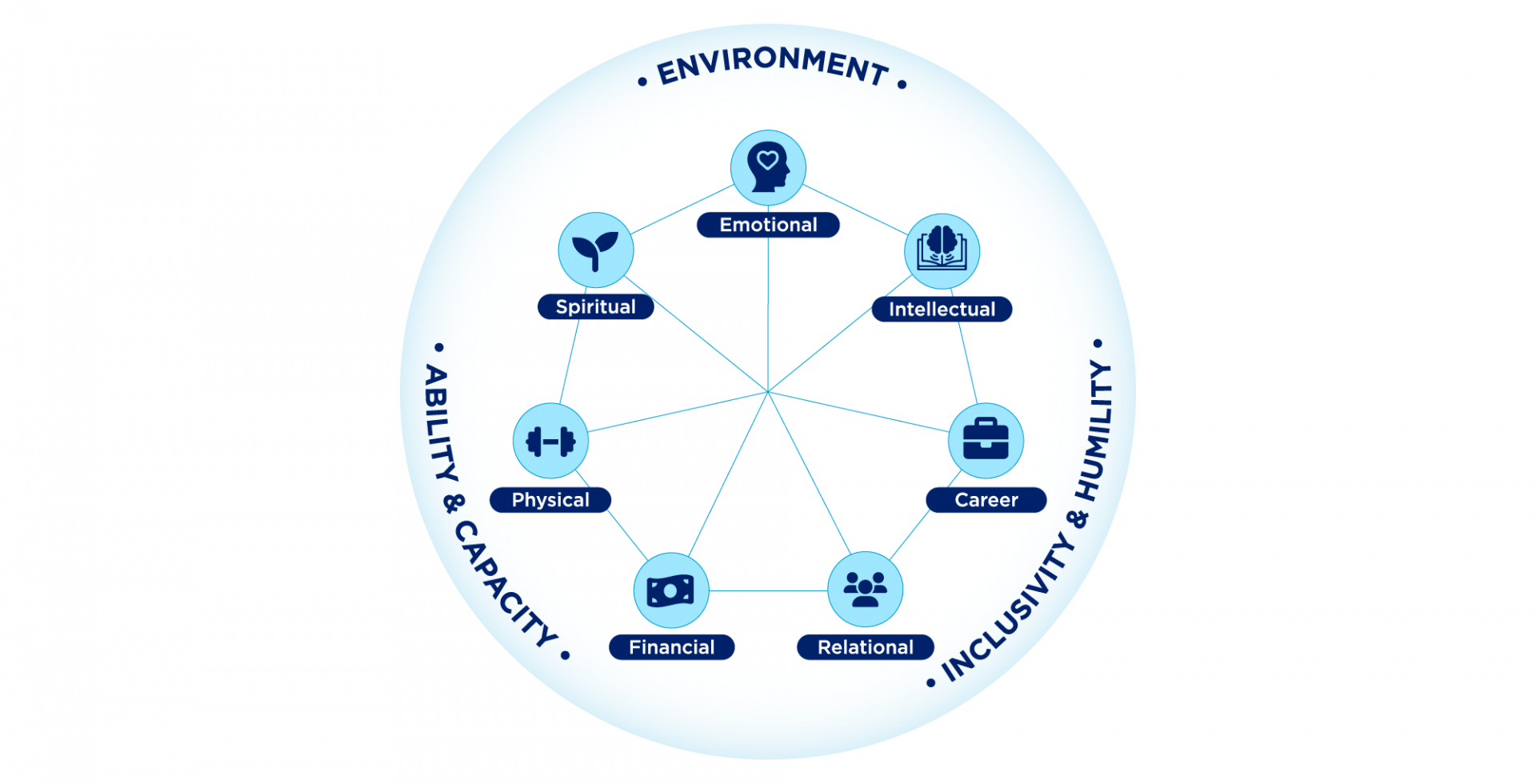Well-being at Columbia
Last reviewed: 1/18/2023
At Columbia, well-being is an active and continuous practice, informed by ability, capacity, and environment. Well-being engages internal efficacy, promotes inclusivity and cultural humility, fosters a sense of belonging, and creates individual and organizational value.
In all areas of the University, well-being is a priority that supports the advancement of knowledge and learning at the highest level and exists in a global context.
Well-being Dimensions

Career Well-being: To pursue fulfillment, connection, and growth in one’s work.
Emotional Well-being: To identify and manage feelings while responding and adapting effectively.
Financial Well-being: To access and manage resources in order to feel secure while meeting current and on-going needs.
Intellectual Well-being: To explore ideas and experiences that stimulate learning and knowledge application.
Physical Well-being: To engage in a dynamic state of continuous physiological renewal.
Relational Well-being: To develop positive, supportive, and ongoing connections in interpersonal, community, and organizational spheres.
Spiritual Well-being: To seek and express meaning, purpose, and “connectedness to the moment, self, others, nature, and the significant or sacred.” 1
Acknowledgments
Through a broad community-based participatory process, the following groups made material contributions to the development and approval of a University-wide definition of well-being and the associated dimensions. We express our ongoing gratitude for past, present, and future leadership to advance well-being among all members of the Columbia Community.
- Live Well | Learn Well, Columbia’s JED Initiative
- Columbia Health
- Healthier Columbia Network
- Wellness Advisory Committee, Office of Work Life
- Computer Workstation Ergonomics Working Group, Office of Work Life
- General Studies Student Council
- Columbia College Student Council
Reference
